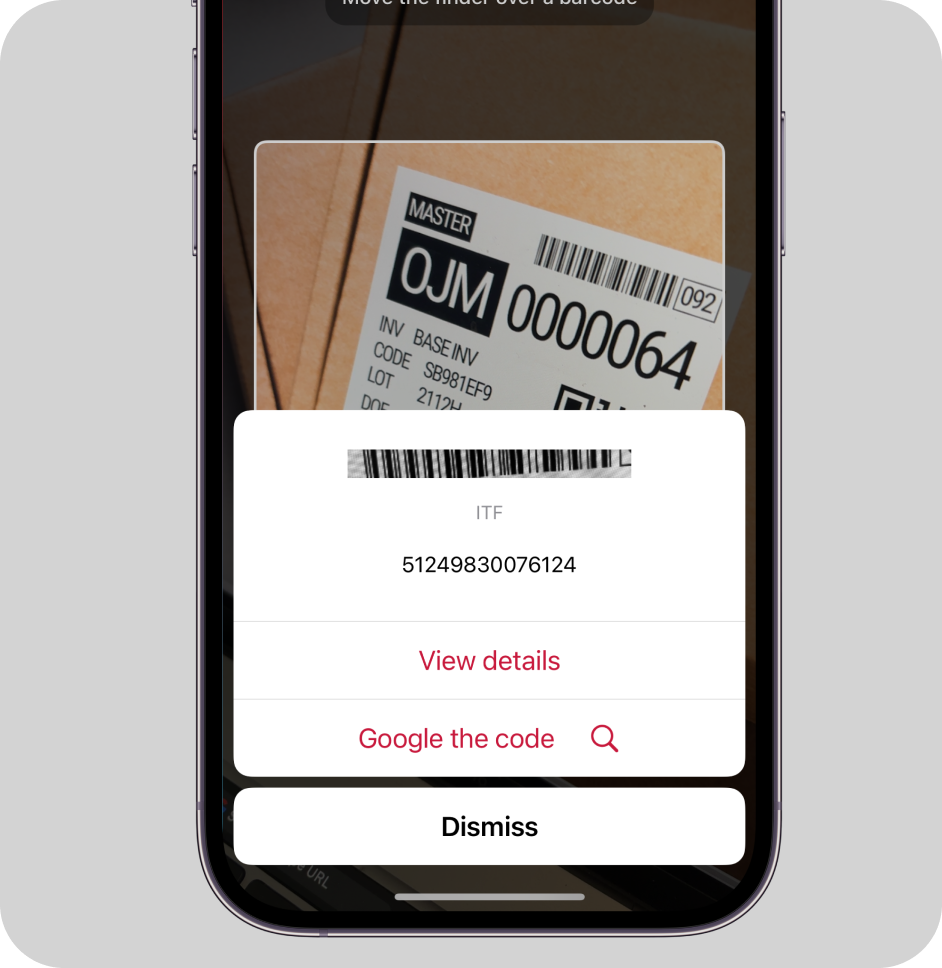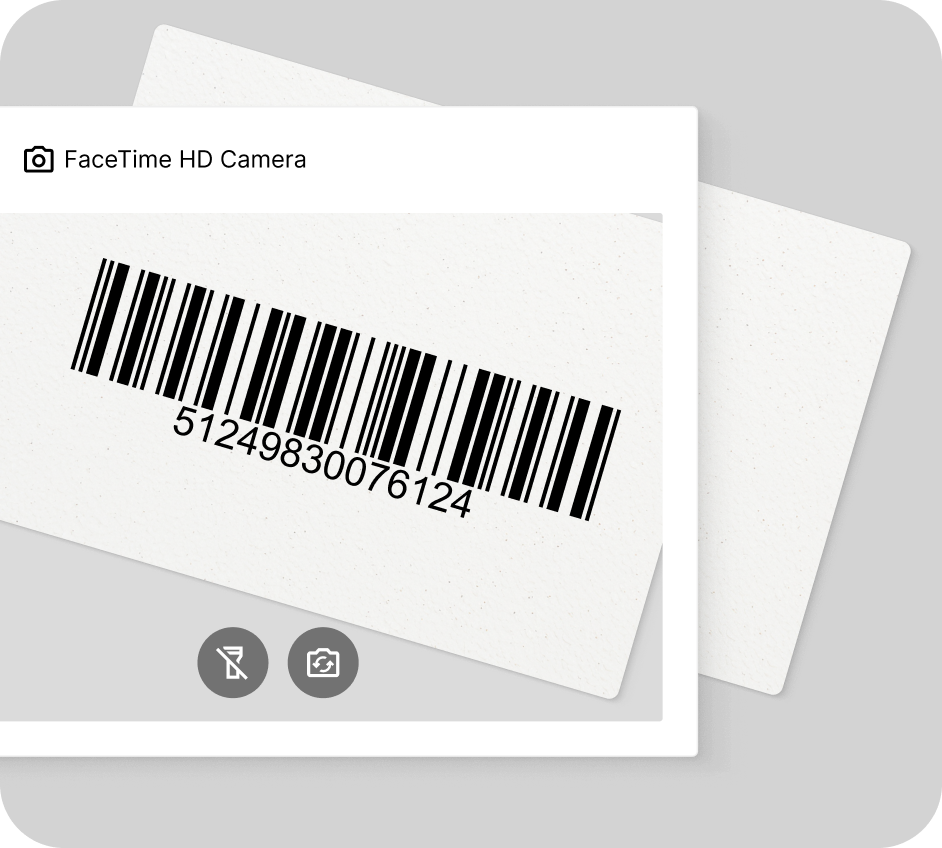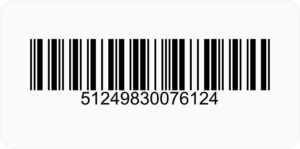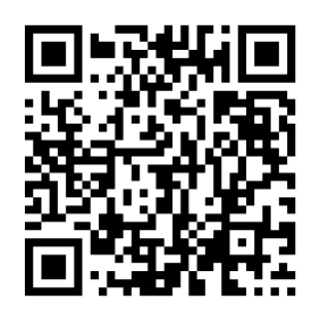ITF Barcode Scanner
Add Interleaved 2 of 5 scanning to your mobile application or website
Trusted by
400+
global
industry leaders
Turn smartphones into fast & reliable ITF code scanners
The Scanbot ITF Barcode Scanner SDK delivers exceptional performance even under challenging conditions – such as code damage or when scanning tiny codes. With a scanning speed of under 0.04 seconds, your users get instant reads for seamless workflows.
Key benefits include:
- Offline scanning: The Scanbot SDK works 100% on-device, ensuring both uninterrupted performance and data security.
- Enterprise support: Questions or requests? Contact our technical support team. We’re happy to assist you.
- Flat pricing model: Cost stays the same no matter how much your user base or scanning volume grows.


How this scanning tool works
Our free online ITF barcode reader scans codes directly through your camera or on imported images. This barcode scanner works in any browser, no app download or signup needed. Enjoy real-time camera view scanning or decode barcodes on pictures in seconds – just point your tablet, laptop or mobile phone’s camera at the ITF barcode or import an image file to instantly access the encoded data.
This tool is powered by the Scanbot Barcode Scanner SDK!
(We don’t store any images or data you import. Everything stays on your device.)
Understanding ITF barcodes
What are ITF barcodes?
ITF (Interleaved 2 of 5) is a one-dimensional, linear barcode that contains pairs of numeric characters into a high-density, self-checking format. It uses a pattern of wide and narrow bars and spaces to represent data, allowing for compact encoding of numeric information.

ITF codes are widely used in logistics, warehousing, and manufacturing industries. They are particularly common on shipping cartons, corrugated cardboard boxes, and outer packaging for efficient inventory tracking and management. There is no strict limit on the total number of characters an ITF barcode can encode, as long as it maintains an even count of numeric characters. However, specific variants like ITF-14 barcodes are limited to 14 digits.
The high data density and ease of printing barcodes on various surfaces make ITF ideal for applications requiring compact numeric data representation. They are used in inventory management, stock control, shipment tracking, and automated sorting in warehouses and distribution centers.
Applications of ITF barcodes
Logistics, shipping and warehousing
ITF barcodes are widely used in logistics, shipping, and warehousing industries for efficient tracking and management of products throughout the supply chain. These barcodes are particularly well-suited for printing on corrugated cardboard boxes and cartons, as their simple structure of wide and narrow bars allows for clear readability even on rough or textured surfaces.
Manufacturing
Manufacturing industries utilize ITF barcodes to track unfinished and finished goods, manage component parts, and maintain precise records of production batches, ensuring seamless traceability and operational transparency throughout the production process.
Structure of ITF barcodes
ITF (Interleaved 2 of 5) barcodes are a special code for numbers only, using thick and thin lines (bars) and the spaces between them to represent digits. The key feature of ITF is that it always encodes two numbers at once:
- One number is represented by the pattern of bars (the black lines)
- The other number is represented by the pattern of spaces between those bars
This interleaved structure is why it’s called “Interleaved 2 of 5”. The “2 of 5” part refers to the fact that each digit is encoded using five elements (bars or spaces), with two being wide and three being narrow. Optionally, ITF codes can include a thick black border that surrounds it. This is called a bearer bar, and it helps prevent partial reads.
Advantages of ITF barcodes
- Compact size: ITF barcodes store numeric information in minimal space, which is ideal for shipping cartons and product packaging with a limited label area.
- Error detection: While not as advanced as 2D barcodes, ITF can include an optional check digit that helps reduce scanning errors.
- Scalability: ITF barcodes can accommodate variable even-numbered lengths of numeric data, allowing flexibility in encoding different quantities of information.
- Versatility: ITF barcodes support omnidirectional scanning, enabling quick and easy reading from multiple angles in industrial and logistics environments.
Why choose the Scanbot SDK for ITF barcode scanning?
The Scanbot Barcode Scanner SDK is specifically designed to handle the challenges of decoding ITF barcodes in real-world scenarios.
What sets us apart:
-
-
- Exceptional performance: Reliably decodes even damaged, low-contrast or distorted barcodes.
- High-speed scanning: Read ITF barcodes in as little as 0.04 seconds.
- Cross-platform compatibility: Easily integrate with Android, iOS, cross-platform, web, Windows, and Linux platforms.
- Customizable UI: Customize the ready-to-use components to match your app or website design.
- Privacy-first: Operates offline for complete data security.
-
Whether your use case involves ITF barcodes, QR codes or any other barcode, the Scanbot SDK delivers the accuracy, speed, and reliability you need to succeed.
Related Barcode Types:
- Data Matrix Scanner
- QR Code Scanner
- PDF417 Scanner
- Aztec Code Scanner
- Code 128 Scanner
- Code 39 Scanner
- EAN Scanner
- UPC Scanner
- Micro QR Code Scanner
- GS1 DataBar Scanner
- GS1 DataMatrix Scanner
- GS1-128 Scanner
- MaxiCode Scanner
- Codabar Scanner
- Intelligent Mail Barcode Scanner
- rMQR Code Scanner
- Royal Mail Scanner
- Micro PDF417 Scanner
Frequently Asked Questions
What is an ITF barcode?
ITF (Interleaved 2 of 5) is a one-dimensional barcode that encodes numeric data using wide and narrow bars and spaces. It represents pairs of digits in a compact, high-density format with an interleaved structure. ITF barcodes can only include an even number of digits. They are common in distribution and manufacturing.
What is the difference between EAN and ITF barcodes?
The key difference lies in their structure and primary application areas.
EAN-13 barcodes are used for retail products with a fixed 13-digit format, while ITF barcodes are used for shipping and logistics with a variable even number of digits. EAN requires high-quality printing and is scanned at point-of-sale, whereas ITF can be printed on rough surfaces like cardboard boxes.
Where are ITF barcodes used?
ITF barcodes are used in logistics, shipping, and warehousing for tracking products throughout the supply chain. They are ideal for corrugated cardboard boxes due to their clear readability. Additionally, manufacturing industries use ITF barcodes to track unfinished and finished goods and manage components.
How can Scanbot SDK help you with ITF barcode scanning?
The Scanbot ITF barcode scanner delivers exceptional performance in challenging environments, including damaged or curved barcodes, with a scanning speed of under 0.04 seconds for seamless workflows. Try it now with a free trial license.



